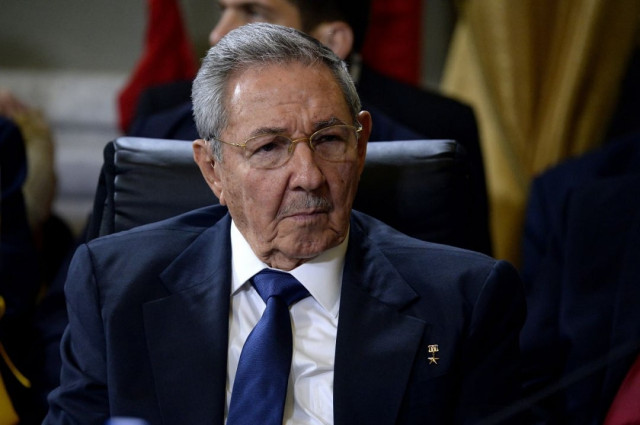International alarm as Venezuela accused of 'coup'
Venezuela's Supreme Court ruled to weaken opposition legislature

Authorities have arrested dozens, keeping others from marching in Havana. PHOTO: REUTERS
The court's move tightened socialist President Nicolas Maduro's grip on power after more than a year in which he was locked in a political struggle with the center-right opposition.
Critics said it was an authoritarian turn for the South American oil producing giant, where an economic crisis has caused food shortages, riots and an epidemic of violent crime. The crisis has raised concerns about stability in Venezuela, which has undergone three attempted military coups since 1992.
Chilean president says Trump concerned about Venezuelan crisis
The US State Department called the court's move "a serious setback for democracy." Regional powers Brazil, Mexico, Argentina, Peru, Chile and others also warned it was a threat to democracy in Venezuela. Guatemala also denounced the court's action. But leftist-led Bolivia defended Maduro, however, Brazil's foreign ministry said it was "a clear break with constitutional order."
The hardest line came from the secretary general of the Organization of American States (OAS), Luis Almagro, who echoed Maduro's opponents' claims of an internal "coup d'etat."
Street challenges power in Venezuela crisis
The judges' move strips Maduro's opponents in the National Assembly legislature of what little grip they had over a key pillar of government.
The high court (TSJ) has consistently backed the leftist president in his power struggle with the legislature. It had on Tuesday also stripped parliamentary immunity from lawmakers in the assembly.
"The unconstitutional decisions by the TSJ to strip parliamentary immunity from the members of the National Assembly and assume the legislative function are the latest actions taken by the authoritarian regime to subvert the constitutional order in Venezuela and eliminate all semblance of democracy," Almagro's statement said.
He said he "denounces the self-inflicted coup d'etat perpetrated by the Venezuelan regime against the National Assembly, the last branch of government to be legitimized by the will of the people of Venezuela," the OAS statement said. The court based its latest decision on an earlier ruling that the opposition majority was in contempt of court.
"As long as the National Assembly's contempt of court and invalidity persist, parliamentary powers shall be exercised directly by (the Supreme Court's) constitutional chamber or by the body it designates to safeguard the rule of law," it said late Wednesday night.
The speaker of the National Assembly, Julio Borges, urged the army, which has thus far supported Maduro, to take a stand.
Venezuela protests against Maduro escalate, dozens injured
"The Venezuelan armed forces cannot remain silent as the constitution is breached," he said, appealing to soldiers who are also suffering through what he called the "chaos" of the economic crisis.
With the public support of the military and control of most state institutions, Maduro has been resisting opposition calls for early elections.
The court said the National Assembly leadership was in contempt for swearing in three lawmakers who were banned over alleged electoral fraud.
The opposition Democratic Unity Roundtable (MUD) condemns the fraud charges as a trumped-up bid to curb its power after it won a landslide in legislative elections in December 2015 with a promise to oust Maduro.
The court has overturned every law passed by the opposition-led legislature. "To legally overtake the functions of a branch of government is a coup," said Latin America specialist Christopher Sabatini of Columbia University in New York.
The court's expansion of its own powers came as part of a ruling on an oil law. It enables the government to launch joint ventures with private oil companies without legislative approval.
Venezuela has the world's biggest oil reserves but the collapse in prices has sapped its revenues, prompting shortages of food, medicine and basic goods like toilet paper.



















COMMENTS
Comments are moderated and generally will be posted if they are on-topic and not abusive.
For more information, please see our Comments FAQ